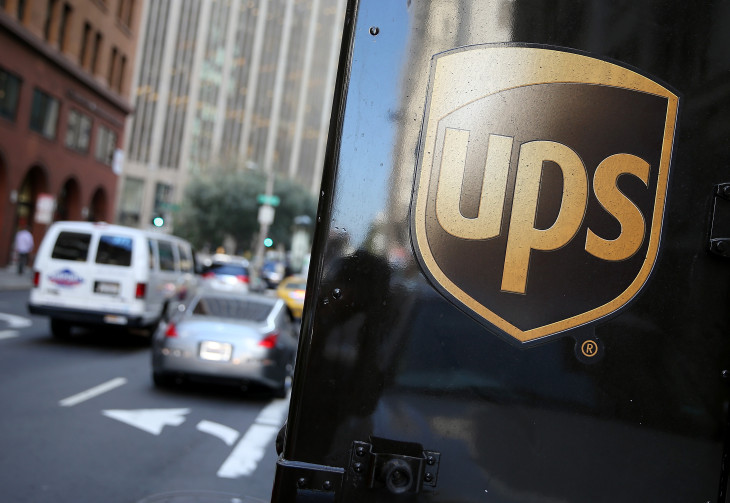Blockchain in transportation industryBlockchain is a technology that enables identifying and tracking transactions digitally and sharing this information across a distributed network of computers. What blockchain introduces, fundamentally, is greater trust across the ecosystem. With blockchain, participants have every thing they require to know about their shipments and transactions in one place, and they know the details is dependable simply because of the safety of the distributed ledgers. In terms of the challenges and the demands of the transportation market, blockchain can turn out to be a transformative tool.
Blockchain technology is an innovation invented by Satoshi Nakamoto in 2008. It was developed to be utilized as a distributed database technologies intended to hold records of digital data. With this technologies, individuals were able to guarantee the transparency and safety of the stored information without the need to have to have a controlled central organ. 10 years following Blockchain was created, it was used to boost the operations of the transport and logistics sector.
Bokher: There are no established blockchain platforms in trucking but, though some startups aim to build that. Present startups ShipChain, CargoX, Block Array, and Blockfreight have raised funding to develop blockchain primarily based solutions for supply chain and logistics. As for common blockchain platforms, Etherium seems to be the most promising. Despite some of its flaws, it has gained network effects that are essential for any platform.
GE Transportation Joins Blockchain In Transport Alliance (BiTA)blockchain in transportation industry
blockchain in transportation industryA key driver for the international refrigerated sea transportation market place is the pharmaceutical industry increasingly preferring sea transportation. She adds: If each major transportation company has their own set of standards about blockchain, it becomes extremely hard for us to collaborate on behalf of customers. From the shippers’ perspective, blockchain will very best serve them when it is standardized and they have visibility across every single vendor and supplier to their entire network of their provide chain.
Electronic Information Interchange (EDI) has been the common system in the logistics industry for more than 30 years , and the sector nevertheless lacks an general EDI common. As an alternative, there are multiple distinct versions of the technologies, causing a messy chain of inconsistencies from organization to organization which contribute to numerous of the issues we’ve touched on in this piece.
Blockchain could be a game changer for supply chain management. Logistics firms could insert provisions into intelligent contracts so that, if the condition of the goods are not properly maintained during transit (for example, perishable goods not being maintained at the correct temperature), these goods could be immediately, and automatically, re-ordered. Using blockchain in this way prevents the need to wait till goods have reached their location ahead of such troubles are found saving both time and cash.
How Blockchain Technologies Could Adjust The Transportation Businessblockchain in transportation industry
blockchain in transportation industryThe transportation sector of General Electric (GE) has turn into a member of Blockchain in Transport Alliance (BiTA) GE is 1 of the leaders in revolutionary and sustainable technologies with twelve business sectors including power, aviation, digital, healthcare, renewable energy, transportation and worldwide study. And who much better to answer these queries than the men and women who function in the market each day. We want to make confident that blockchain does not grow to be a vendor driven, computer software provider driven remedy, but it really is those of us who have to reside, operate and breathe this business every day that are defining how it functions very best for us,” says Montgomery.
It pays to concentrate on specific challenges and applications, so along these lines, we have a number of job forces. For instance, there’s discussion about insurance and the wish to expedite loss verification. Also note, when insurers never know much about the carrier or when they can not accurately verify provenance, that increases the price of insurance—and blockchain can help to address this.
The technologies can record and store not only the exact place of the product in genuine time but also where it has been, the checks it has passed and also data about the state of the product (e.g. which temperatures it has been exposed to) in a tamper and forgery-proof way. All of this can be accessed by the several companies in the chain and even the end-customer when they scan a code on a solution.
How Blockchain Reshaped The Transport Industryblockchain in transportation industry
blockchain in transportation industryMany companies require wonderful transportation partners to preserve increasing. Considering that the rise of Bitcoin , blockchain has been a hot subject. This digital solution, even so, represents only a little piece of the pie. There are a wide number of applications in which we can use blockchain, like the transportation market. Clearly, BiTA members place a weight on the creation of universal requirements, since they realize that blockchain in freight and logistics will only be profitable if it eliminates the data and administrative inconsistencies that plague the business in the initial spot.
As inefficiency mounts in the globe of logistics and transportation, much more firms are joining the charge to incorporate blockchain-based technologies into the trucking market. Blockchain is a digital ledger that identifies and tracks transactions. This technology has the guarantee to resolve true organization issues such as tracing food contamination or escalating supplier transparency.
Wise contracts in the logistics business have the potential to automate commercial processes the moment that agreed circumstances are met. Storing and validating the information created by the use of V2V Communications on the blockchain can support transportation organizations across the planet streamline their operations. Not only that, but SkyCell uses its cloud platform to record all documentation all through the process on a blockchain ledger, such as bills of lading and customs types.





